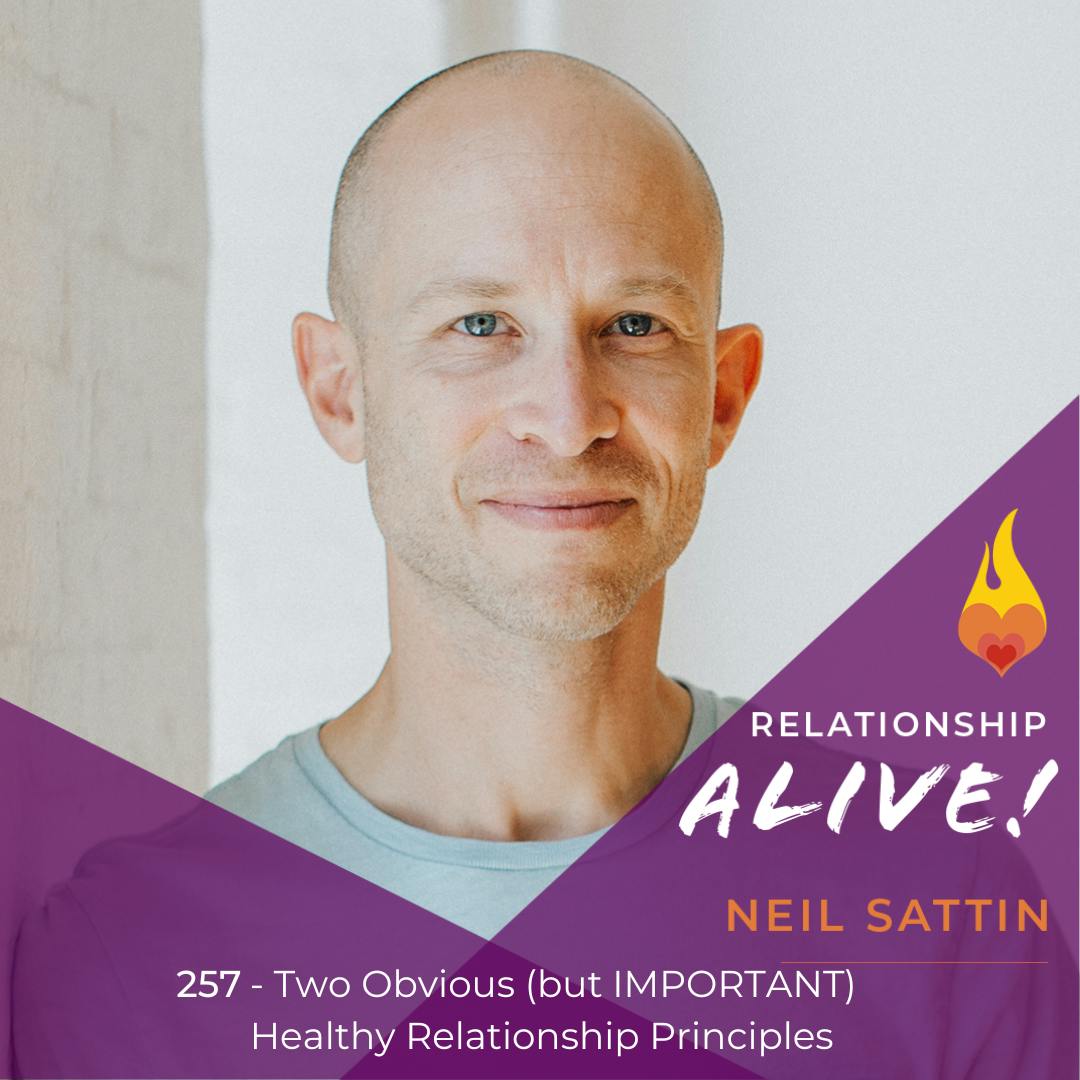If your relationship is going to thrive and stand the test of time, then what are the essential ingredients for that to happen? What do you have the "right" to do - and experience - in your relationship? And - like any time that we have rights - what are the responsibilities that go along with those rights? After this week's episode, you'll be able to diagnose what's going well in your relationship - and where important things are missing.
As always, I’m looking forward to your thoughts on this episode and what revelations and questions it creates for you. Please join us in the Relationship Alive Community on Facebook to chat about it!
Resources:
Check out my Secrets of Relationship Communication COURSE for a masterclass in how to improve the communication and connection in your relationship.
I want to know you better! Take the quick, anonymous, Relationship Alive survey
FREE Guide to Neil’s Top 3 Relationship Communication Secrets
Guide to Understanding Your Needs (and Your Partner’s Needs) in Relationship (ALSO FREE)
Support the podcast (or text “SUPPORT” to 33444)
Amazing intro and outro music provided courtesy of The Railsplitters
Transcript:
Neil Sattin: Hello and welcome to another episode of Relationship Alive. This is your host, Neil Sattin. And it's really good to be back with you. You may have noticed that I haven't been recording as much lately, and that's on purpose, because after so many years here at Relationship Alive, I decided that it was an important moment in my own evolution and in the evolution of the show to step back and look at all the things that we've talked about over the past number of years, over the past 247 episodes, and see if there was some way to distill that information, so that it can be even more clear, can make even more sense. And if that can bring you a little bit more joy or spare you a little bit more pain, then I feel like I'm doing my job.
Neil Sattin: So to that end, I've been working on a list of what I think are... I've been tentatively calling it the Relationship Bill of Rights. But that's not totally true, because for one thing, along with rights, there are responsibilities, and it's hard to have a conversation about the rights that we should enjoy in relationship without also talking about the corresponding responsibilities.
Neil Sattin: So, without further ado, let's talk about the Relationship Bill of Rights. And as we go through, I will touch on the responsibilities. As you'll hear with most of these, we could have an entire podcast episode on each of these individually. So, there's going to be a lot to cover here, and I'm not going to possibly be able to talk about all the nuances of every one of these, but we're going to cover a lot of ground, and I think at the end of it, you are going to realize... If you're in a relationship, or if you're referring to a past relationship, you're going to realize what is working or was working for you, and you're going to also get a sense of where things aren't working. And so, a list like this can be a great diagnostic tool for you to identify what's working well and what maybe not so much.
Neil Sattin: Just... I also want to note that as I was going through this, I recognized that I have an implicit bias toward a particular kind of relationship. And that bias is reflected in the rights of relationship that you are about to hear. If you want to have a relationship that is functional, meaning, that's just based on mutual... Like, we're both paying the bills, we're both doing the house work, we're both raising the kids, and otherwise we don't really care too much about each other, or it can be like pure business, then this list may not resonate with you. And that will be interesting for me to hear, like, what are the things here where you're thinking "Well, that sounds good, but it's totally impractical, or that sounds good for other people, but not for me."?
Neil Sattin: What you might find is that when you hear something, you're like, "That sounds good, and I don't know if that's possible for me in my current relationship," that's another possibility. Those are questions to be answered on other episodes of the podcast. And in fact, we've spent a lot of time addressing the challenges, the problems of relationship for that very reason, so that you can get more toward a fulfilled state of relational harmony that's reflected by this Bill of Rights. Alright, I'm going to dive in. And these are happening in no particular order, though, as the list gets more and more refined, maybe we'll make it into a more logical progression, but these first few that all go together, I think they really do represent a foundation for where we start in relationship.
Neil Sattin: So, your first right or rights in relationship are to be seen, accepted and respected for who you are, not who someone wishes you would be, whether that's just their projection onto you, because they imagine you to be a perfect being, or whether it's because they find all these faults in you that they want to fix. No matter what, even if you're on a path of growth in your relationship, and we'll talk about that in a minute, you are who you are in the moment, with all the things that are awesome about you and all the things that suck about you. And if you dwell too much on what's awesome then... Well, that's generally a reflection of narcissism. If you reflect too much on what sucks, then you're going to be depressed and despondent. However, having a healthy perspective on both of those things along with the things that are just... That just are, maybe that are neutral, that's really important for you, both in terms of showing up as you are with integrity in your relationship, and also because it's just what is, and there's a lot of suffering...
Interested in reading the transcript for the rest of this episode?


